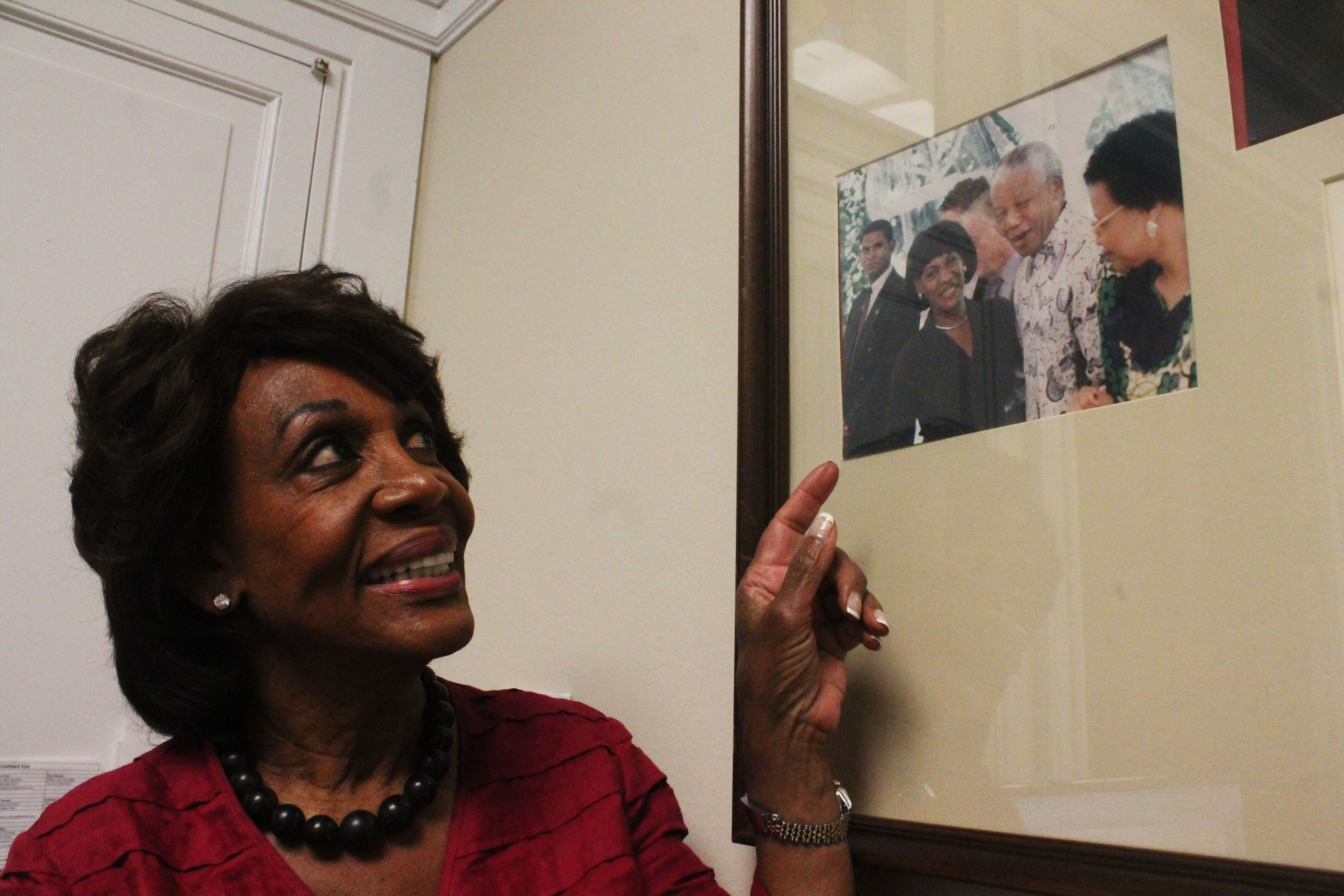WASHINGTON — Rep. Maxine Waters says being in the presence of Nelson Mandela nearly rendered her speechless.
Mandela “was a kind of person that you were so in awe of until you were almost stymied in your ability to speak with him on an ordinary level,” she said in an interview this summer.
Mandela died Thursday in South Africa at age 95.
Waters was a leader of the anti-Apartheid movement in the United States and headed up efforts to divest pension funds from companies that did business with South Africa.
“Most of the time I was with Nelson Mandela, I was listening to him,” the California Democrat said. “He was the one with the experiences, he was the one with the history, he was the one who had sacrificed and he was the one who… was revered by everybody and sought after by everybody in the world.”
Mandela, elected president of South Africa shortly after his 1990 release from prison, visited Washington and addressed joint sessions of Congress in 1990 and 1994. He was also awarded the Congressional Gold Medal in 1998.
“The leadership of Congress and the members of the United States Congress absolutely were in awe of him and thrilled with who he was,” Waters said. “He was such a man of purpose and sacrifice that he just, I mean — he was like God.”
Upon Mandela’s death Thursday, Speaker John Boehner, R-Ohio, released a statement saying, “Mandela led his countrymen through times of epic change with a quiet moral authority that directed his own path from prisoner to president. He passes this world as a champion of peace and racial harmony.”
Senate Minority Leader Mitch McConnell, R-Ky., said, “‘Madiba’s’ patience through imprisonment and insistence on unity over vengeance in the delicate period in which he served stand as a permanent reminder to the world of the value of perseverance and the positive influence one good man or woman can have over the course of human affairs. The world mourns this great leader.”
In her statement, House Minority Leader Nancy Pelosi, D-Calif., noted, “Nelson Mandela once said that ‘courage was not the absence of fear, but the triumph over it.’ His life is the affirmation of this statement: a story of courage, a triumph over fear, a whole-hearted faith in the power, promise, and possibility of the human spirit.”
According to former Sen. Alan Simpson, R-Wyo., in an interview this summer, Mandela “was everything that could ever be written about him.”
“He had a look of peace — that he had made peace with himself, peace with the horror of what he went through and decided that – as my mother used to say, ‘hatred corrodes the container it’s carried in,'” said Simpson, who met with Mandela both in South Africa and Washington.
Rev. Floyd H. Flake, a former Democratic congressman for New York’s 6th District who first met Mandela a few days before his inauguration as South African president, agreed.
“There was no anger,” Flake said in a phone interview. “To a degree, there was no sense that he had a feeling that he had been mistreated by virtue of having served all of that time.”
Flake said Mandela’s visits to Washington underscored his ability to bring people together.
“If he did one thing well, it was — because of the nature of his personality — the ability to pull people, to bring people together and to make them think together about what’s best for the planet, best for the world,” Flake said. “It was just not only a sense that ‘this is about South Africa’ – this is about all of us. This is about our relationship to one another and indeed our relationship as we try to create an environment where people understand that democracy is a reality and not just a word.”
Rep. John Conyers, D-Mich., said he was struck by Mandela’s humility.
In a statement provided by his office, Conyers relayed a story about how during Mandela’s visit to Detroit, Rosa Parks, the mother of the U.S. civil rights movement — who had also worked for Conyers — was “incredibly excited” to meet Mandela and “thanked him for all of his work.”
Rather than welcoming the praise, however, Conyers said, “Nelson Mandela was taken aback and told Mrs. Parks that he was there to see her and pay tribute to her work – not the other way around.”

